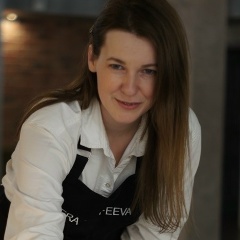Из статьи Калининой Юлии © «МК»:
«Живой — это что-то святое. Для одних людей. Другие никакой святости не ощущают. Осенью они бросят на даче собаку, потому что она лает и ее неудобно держать в городе. А другие люди ее пожалеют, заберут себе в крошечную квартиру и будут носиться с ней до конца жизни.
Я не хочу сказать, что одни люди — хорошие, а другие — плохие. Я хочу сказать, что отношение к живому делит людей на два лагеря. И непонятно, почему одни — в первом лагере, где выбрасывают котят. А другие — во втором, где их подбирают.
Ответственное отношение к животным — не от ума и не от убеждений. С ним рождаются. Или оно есть, или его нет. Если его нет — ничего объяснить невозможно. Даже не надо пытаться. Лучше, наоборот, помалкивать.
Люди, которые выбрасывают котят, считают трепетное отношение к живому психическим отклонением. Поэтому люди, которые подбирают котят, скрывают его, как свою слабость.
Но есть фраза, по которой их легко опознать. Если человек говорит: «Мне совсем не жалко людей» — значит, он из того лагеря, где спасают котят.
Людей не жалко, потому что они сами виноваты в своих несчастьях и сами могут помочь себе. У людей есть руки, мозги, инструменты. У них есть права и рычаги. Они могут требовать и добиваться. А животные и растения не могут добиваться. Они беспомощны. Они даже таблетку не смогут проглотить самостоятельно, если заболеют.
Если человек говорит, что ему не жалко людей, — скорее всего у него четыре кошки и три собаки, все подобраны больными и несчастными.
Но если он скажет, что ему жалко людей, — вы вряд ли найдете у него дома больных старух, которых он приютил из жалости.
В этом и есть вся разница.»
«Живой — это что-то святое. Для одних людей. Другие никакой святости не ощущают. Осенью они бросят на даче собаку, потому что она лает и ее неудобно держать в городе. А другие люди ее пожалеют, заберут себе в крошечную квартиру и будут носиться с ней до конца жизни.
Я не хочу сказать, что одни люди — хорошие, а другие — плохие. Я хочу сказать, что отношение к живому делит людей на два лагеря. И непонятно, почему одни — в первом лагере, где выбрасывают котят. А другие — во втором, где их подбирают.
Ответственное отношение к животным — не от ума и не от убеждений. С ним рождаются. Или оно есть, или его нет. Если его нет — ничего объяснить невозможно. Даже не надо пытаться. Лучше, наоборот, помалкивать.
Люди, которые выбрасывают котят, считают трепетное отношение к живому психическим отклонением. Поэтому люди, которые подбирают котят, скрывают его, как свою слабость.
Но есть фраза, по которой их легко опознать. Если человек говорит: «Мне совсем не жалко людей» — значит, он из того лагеря, где спасают котят.
Людей не жалко, потому что они сами виноваты в своих несчастьях и сами могут помочь себе. У людей есть руки, мозги, инструменты. У них есть права и рычаги. Они могут требовать и добиваться. А животные и растения не могут добиваться. Они беспомощны. Они даже таблетку не смогут проглотить самостоятельно, если заболеют.
Если человек говорит, что ему не жалко людей, — скорее всего у него четыре кошки и три собаки, все подобраны больными и несчастными.
Но если он скажет, что ему жалко людей, — вы вряд ли найдете у него дома больных старух, которых он приютил из жалости.
В этом и есть вся разница.»
From the article by Kalinina Yulia © MK:
“Alive is something sacred. For some people. Others do not feel any holiness. In the fall, they will leave the dog in the country, because it barks and is uncomfortable to keep in the city. And other people will regret it, take it to their tiny apartment and will rush with it until the end of their lives.
I do not want to say that some people are good and others are bad. I want to say that the attitude towards the living divides people into two camps. And it is not clear why some are in the first camp, where kittens are thrown. And others - in the second, where they are selected.
Responsible animals are not from the mind and not from beliefs. With him are born. Or it is, or it is not. If it is not there, nothing can be explained. You don’t even have to try. Better, on the contrary, to keep quiet.
People who throw kittens consider a reverent attitude to the living psychic deviation. Therefore, people who pick up kittens hide it as their weakness.
But there is a phrase by which they are easy to identify. If a person says: “I don’t feel sorry for people at all,” then he is from the camp where kittens are rescued.
People do not mind, because they themselves are to blame for their misfortunes and themselves can help themselves. People have hands, brains, tools. They have rights and leverage. They can demand and seek. And animals and plants cannot achieve. They are helpless. They cannot even swallow a pill on their own if they become ill.
If a person says that he doesn’t feel sorry for the people, then most likely he has four cats and three dogs, all chosen by the sick and unhappy.
But if he says that he is sorry for people, you are unlikely to find sick old women at his house, whom he sheltered out of pity.
That’s the whole difference. ”
“Alive is something sacred. For some people. Others do not feel any holiness. In the fall, they will leave the dog in the country, because it barks and is uncomfortable to keep in the city. And other people will regret it, take it to their tiny apartment and will rush with it until the end of their lives.
I do not want to say that some people are good and others are bad. I want to say that the attitude towards the living divides people into two camps. And it is not clear why some are in the first camp, where kittens are thrown. And others - in the second, where they are selected.
Responsible animals are not from the mind and not from beliefs. With him are born. Or it is, or it is not. If it is not there, nothing can be explained. You don’t even have to try. Better, on the contrary, to keep quiet.
People who throw kittens consider a reverent attitude to the living psychic deviation. Therefore, people who pick up kittens hide it as their weakness.
But there is a phrase by which they are easy to identify. If a person says: “I don’t feel sorry for people at all,” then he is from the camp where kittens are rescued.
People do not mind, because they themselves are to blame for their misfortunes and themselves can help themselves. People have hands, brains, tools. They have rights and leverage. They can demand and seek. And animals and plants cannot achieve. They are helpless. They cannot even swallow a pill on their own if they become ill.
If a person says that he doesn’t feel sorry for the people, then most likely he has four cats and three dogs, all chosen by the sick and unhappy.
But if he says that he is sorry for people, you are unlikely to find sick old women at his house, whom he sheltered out of pity.
That’s the whole difference. ”



У записи 5 лайков,
1 репостов.
1 репостов.
Эту запись оставил(а) на своей стене Алина Мышъ

























